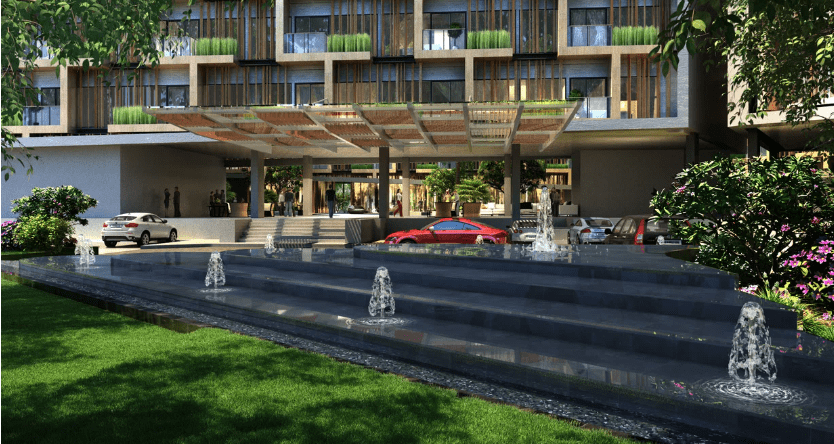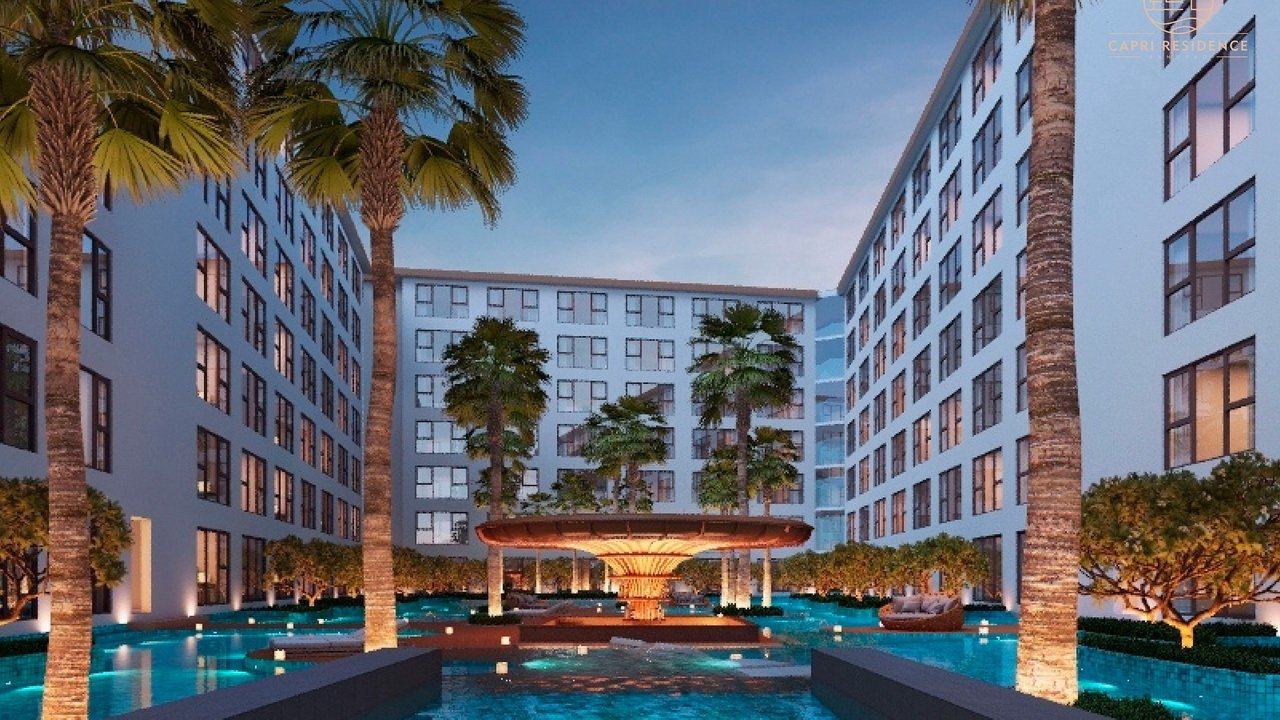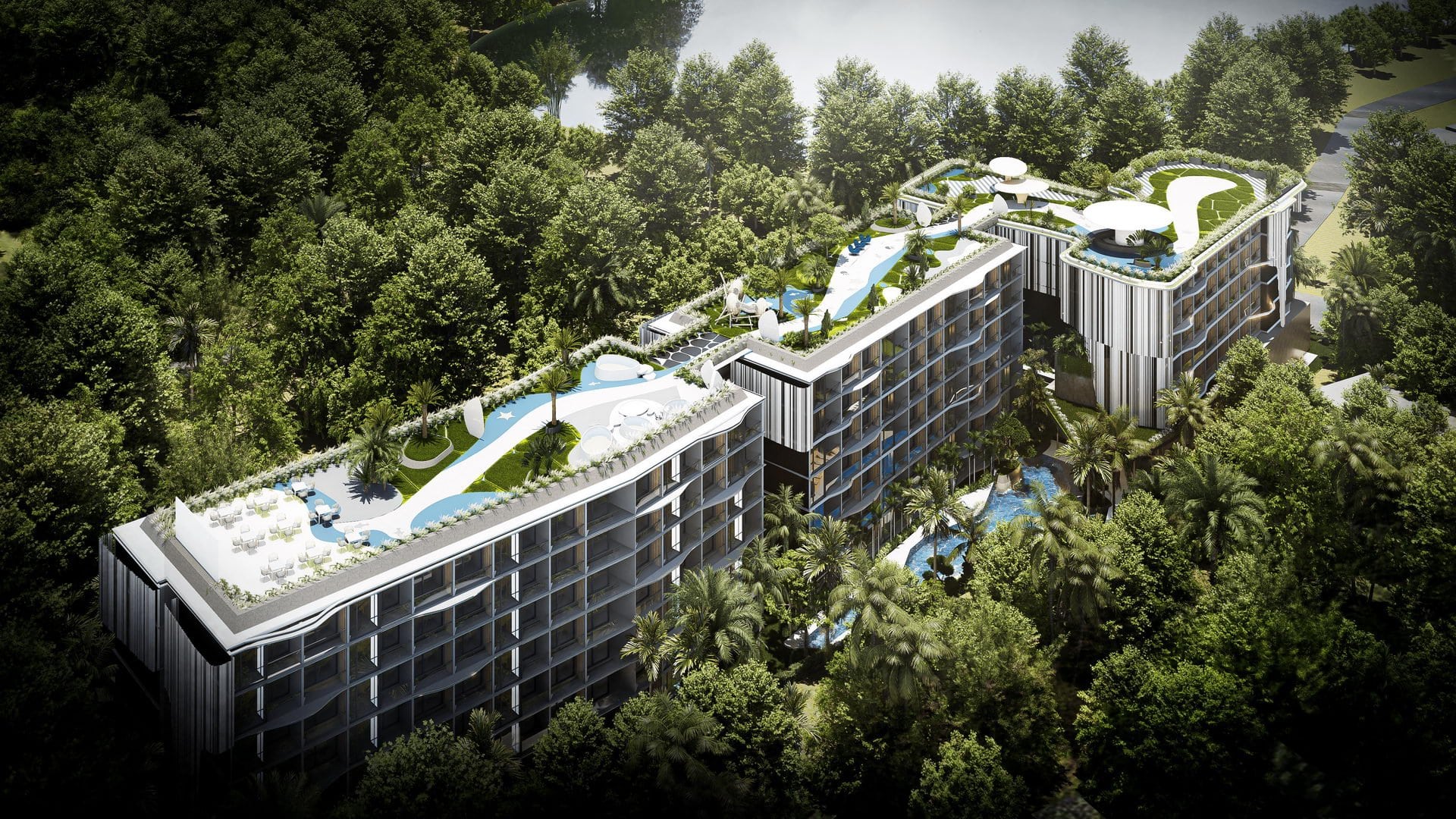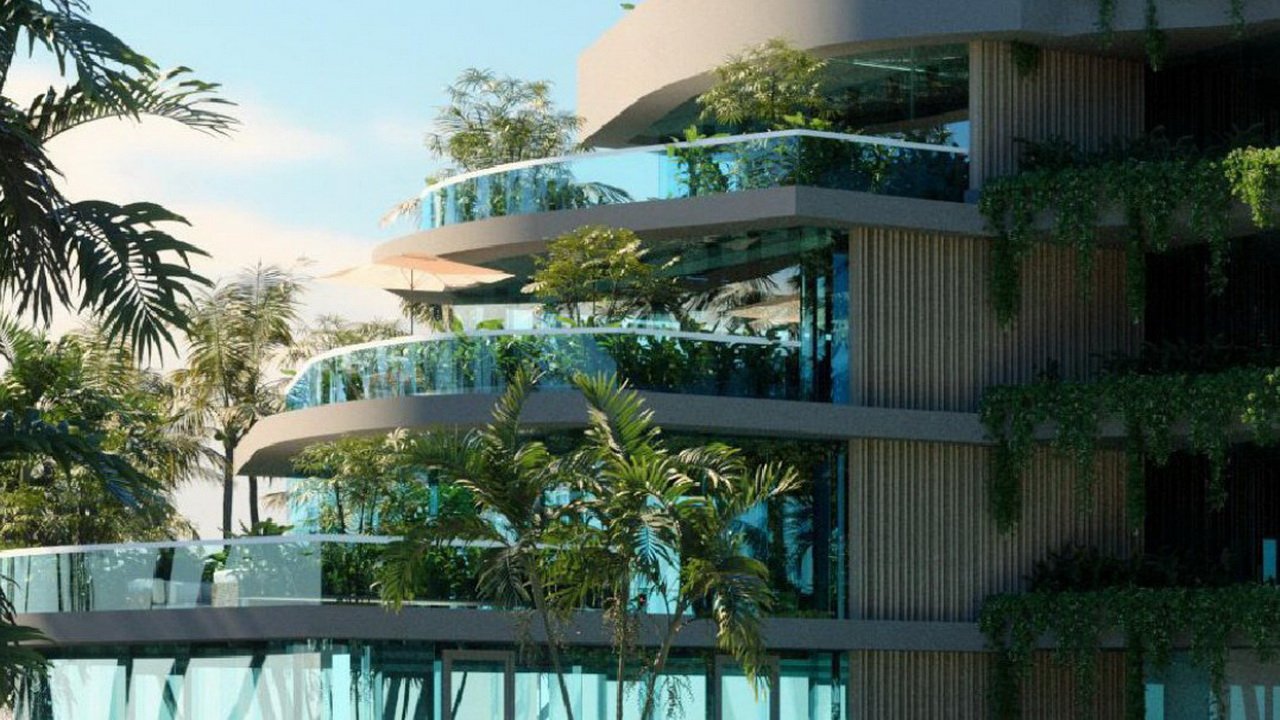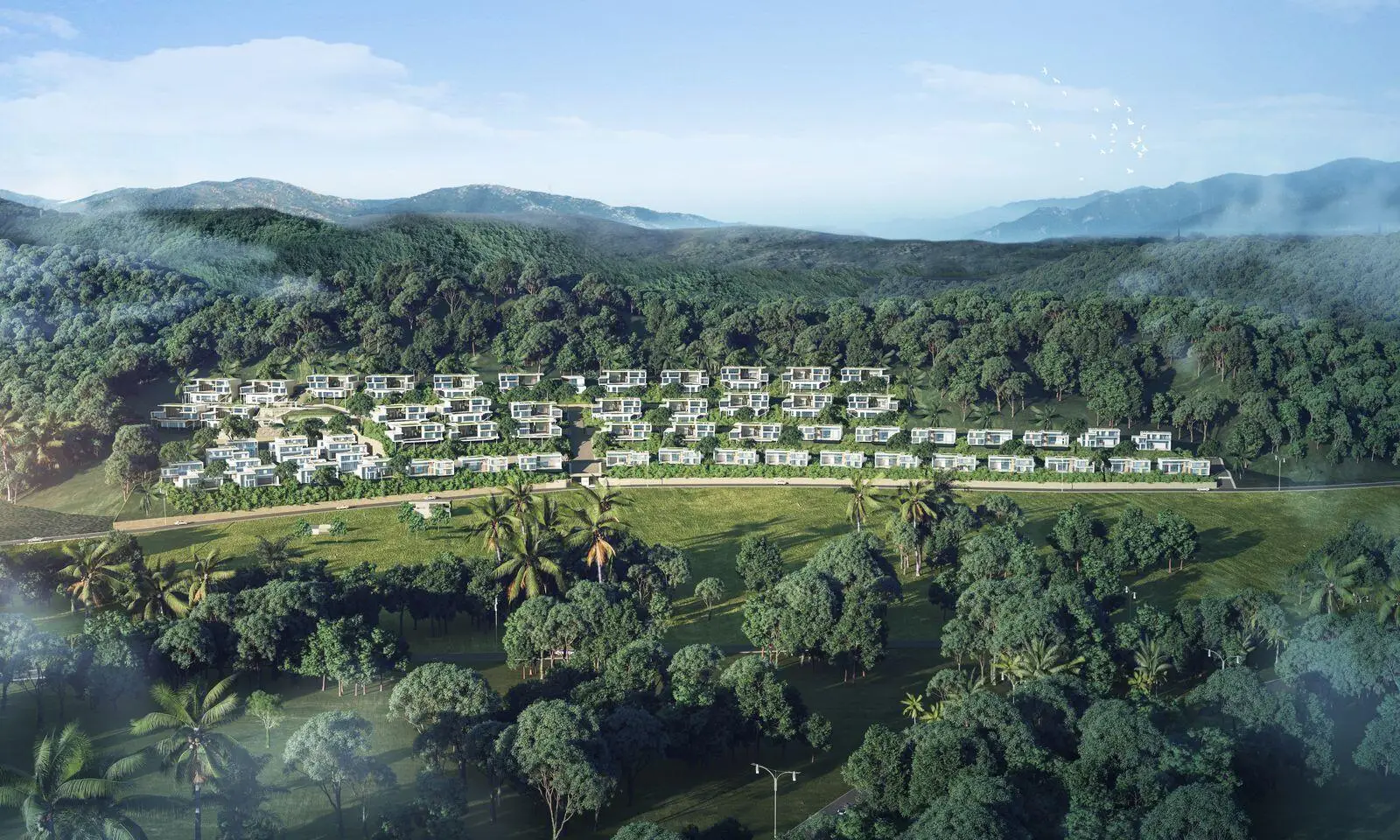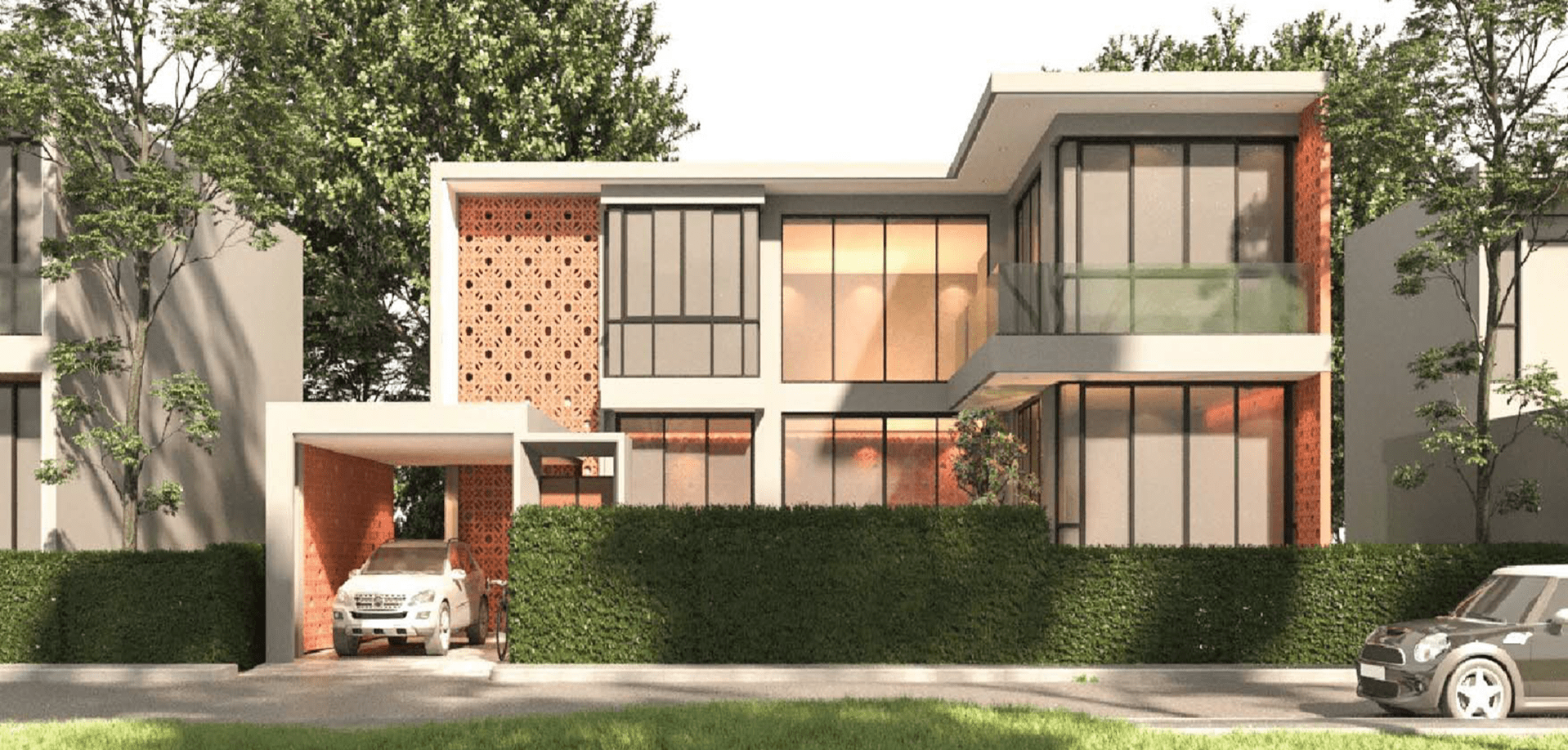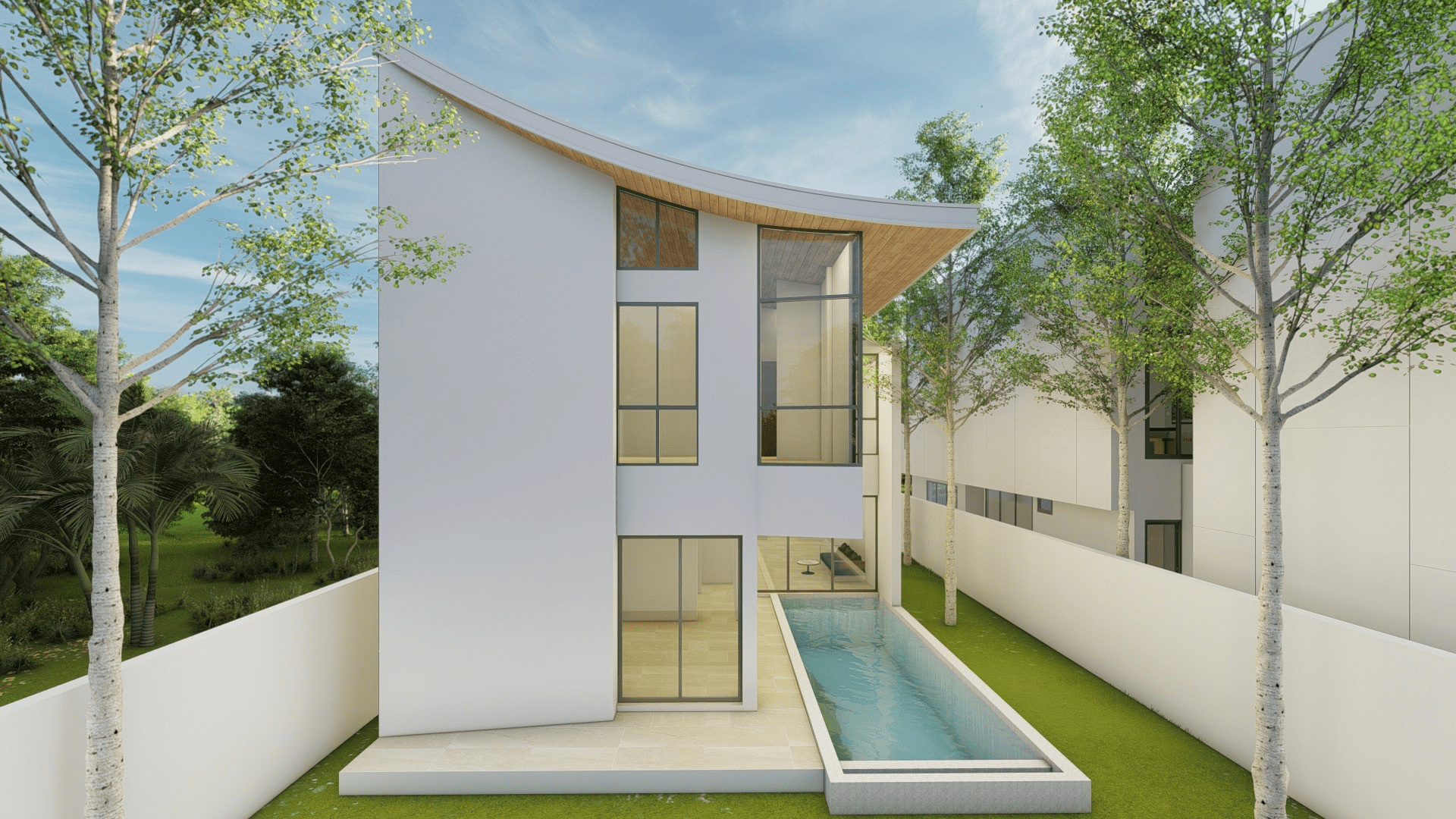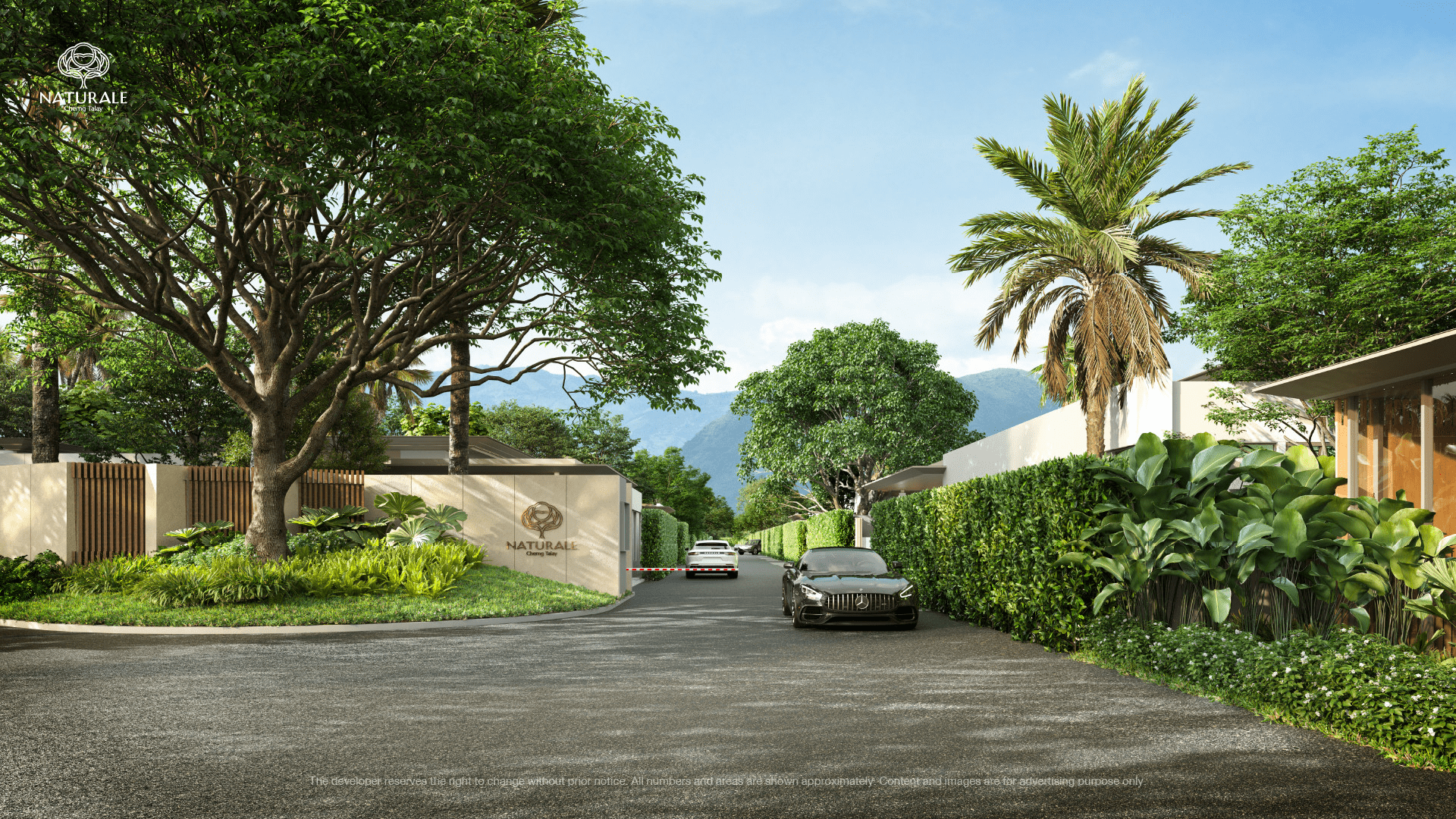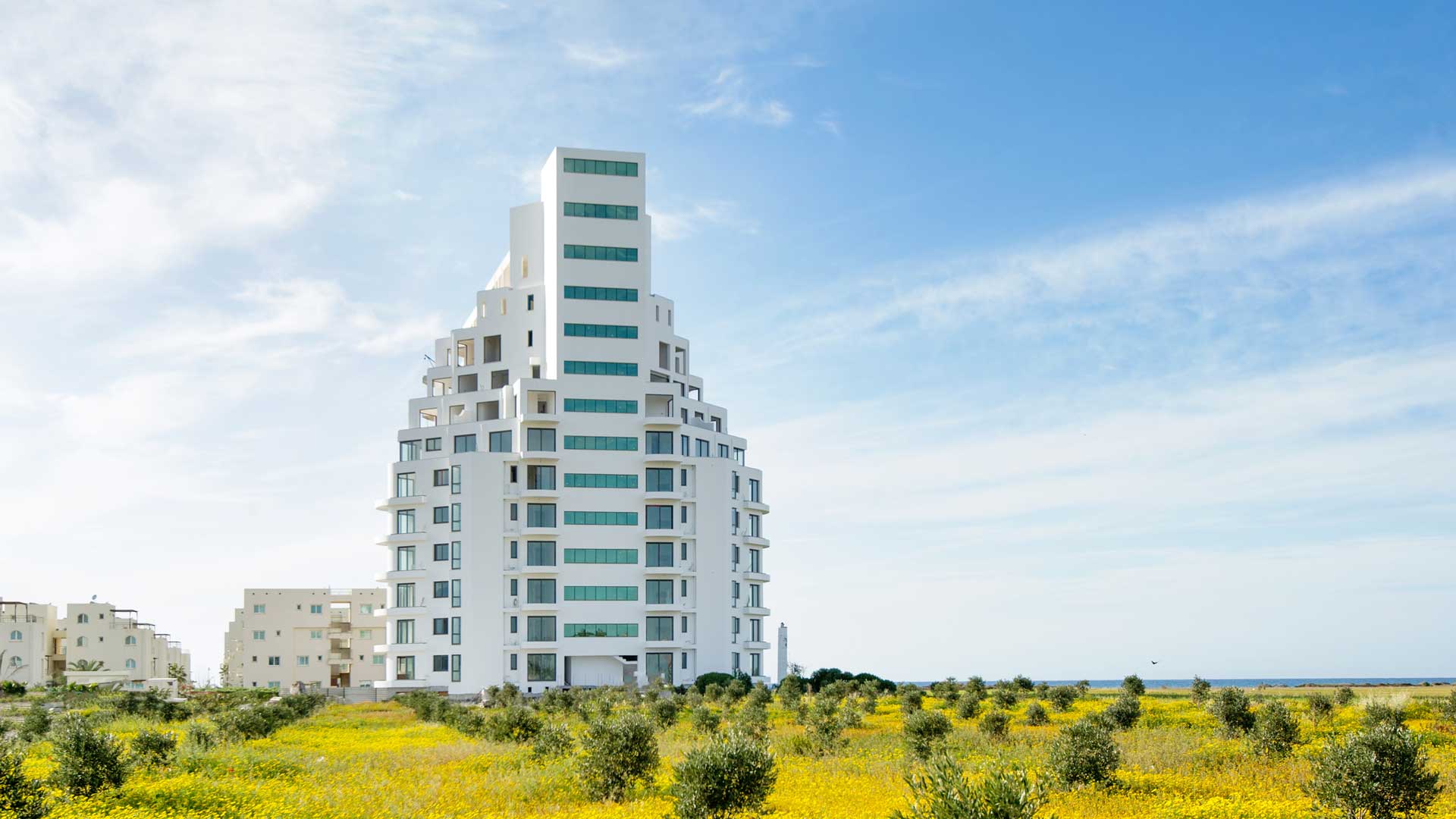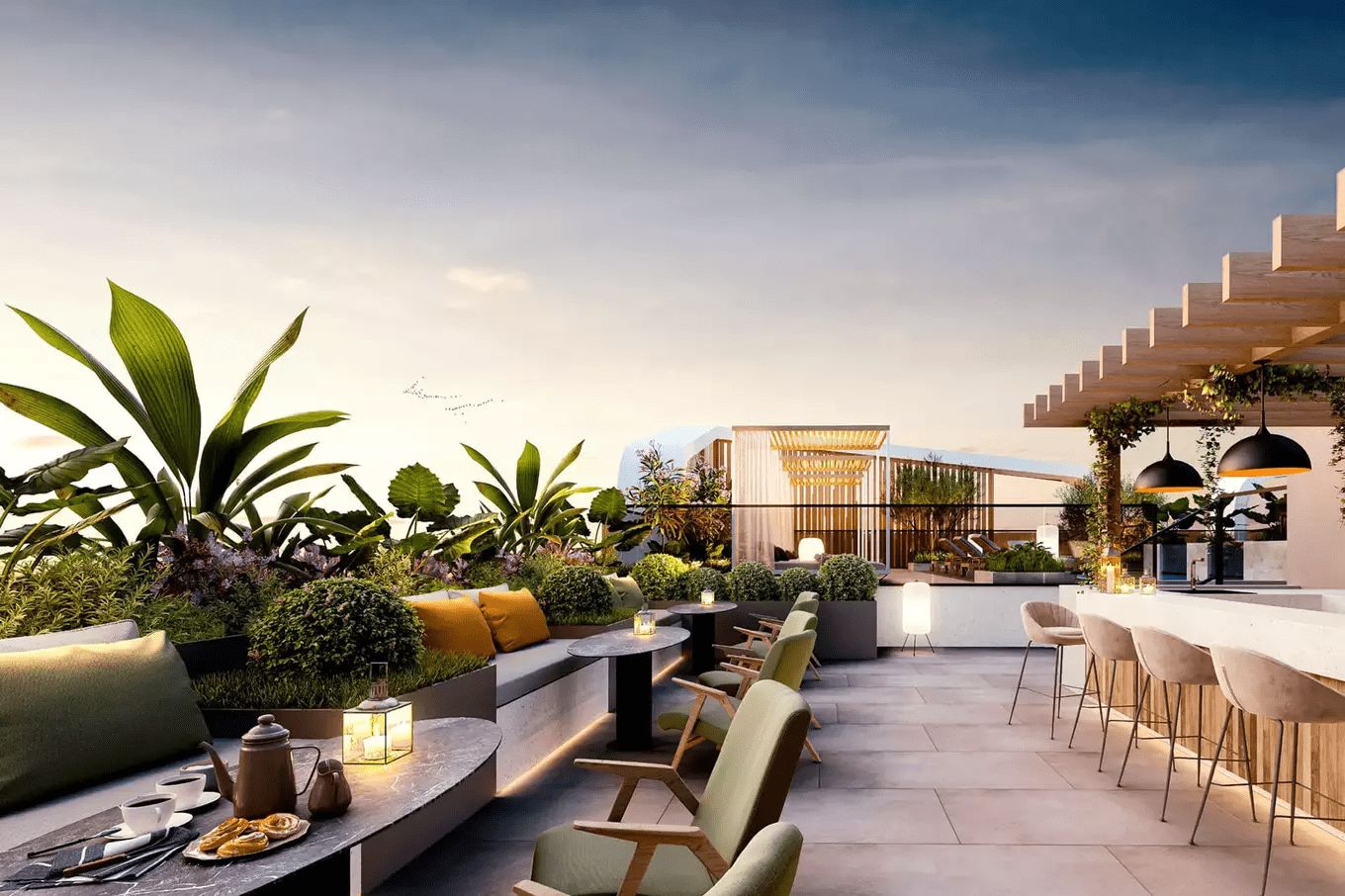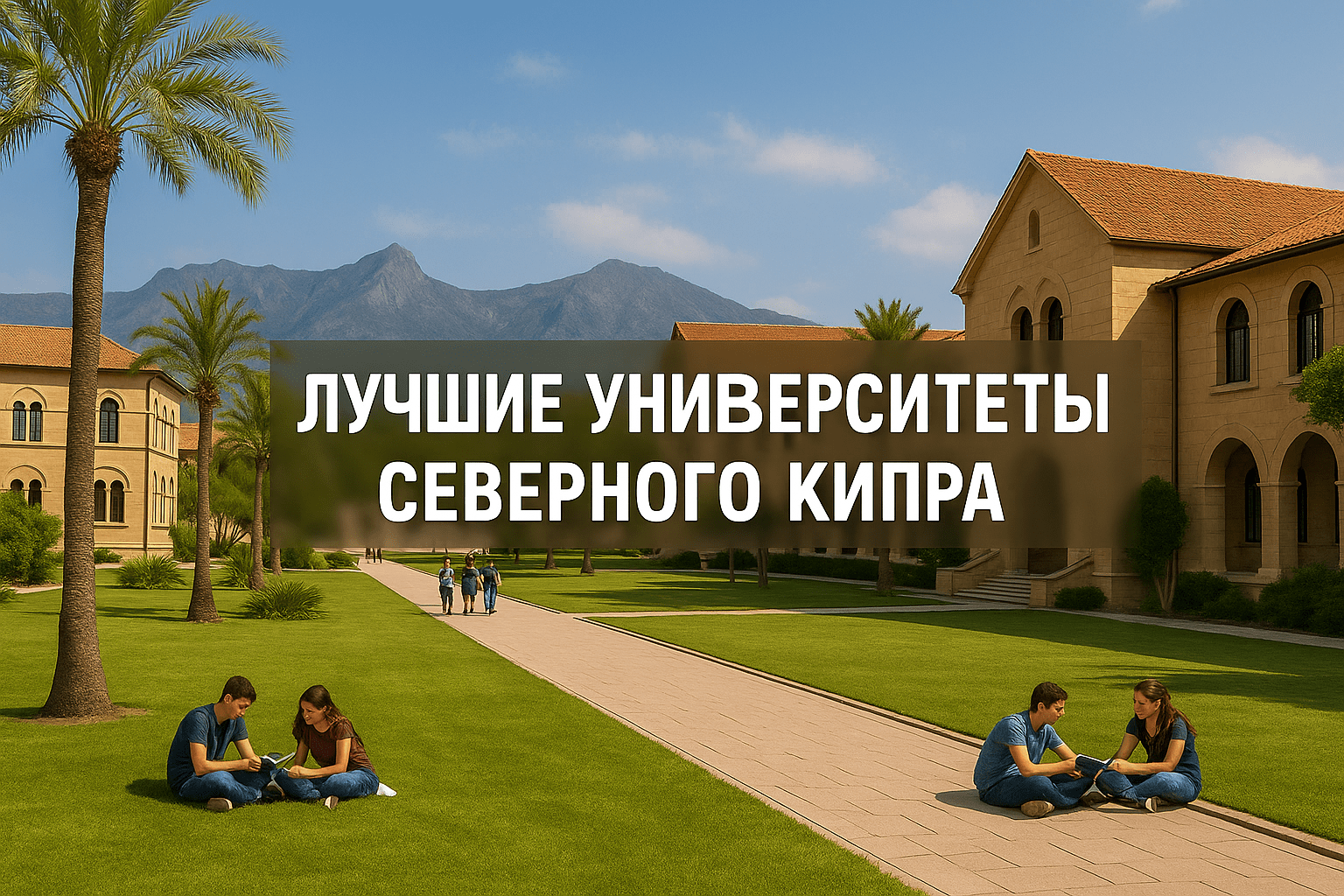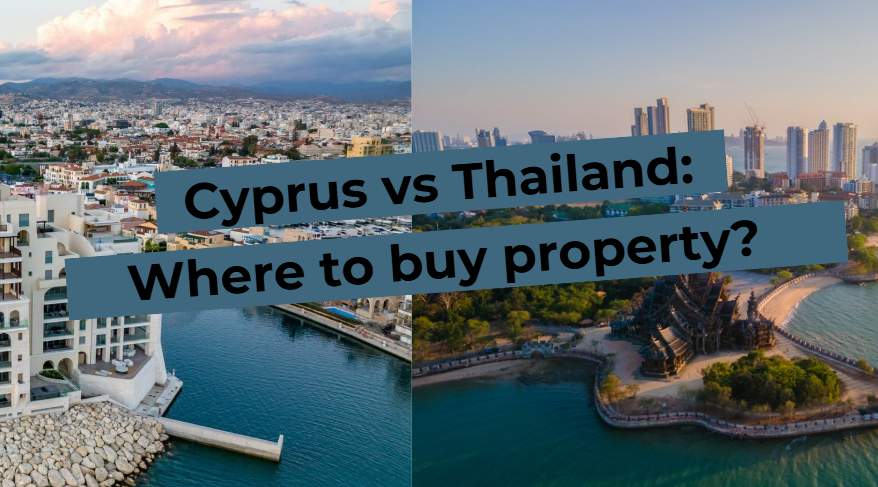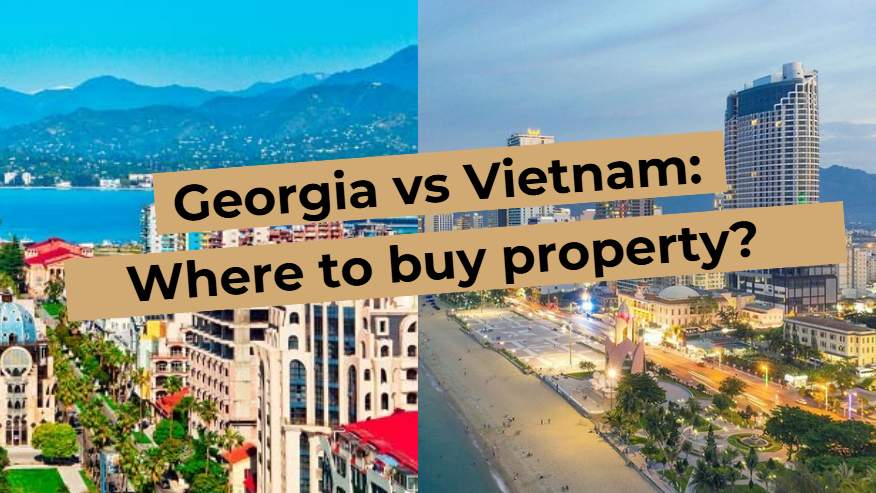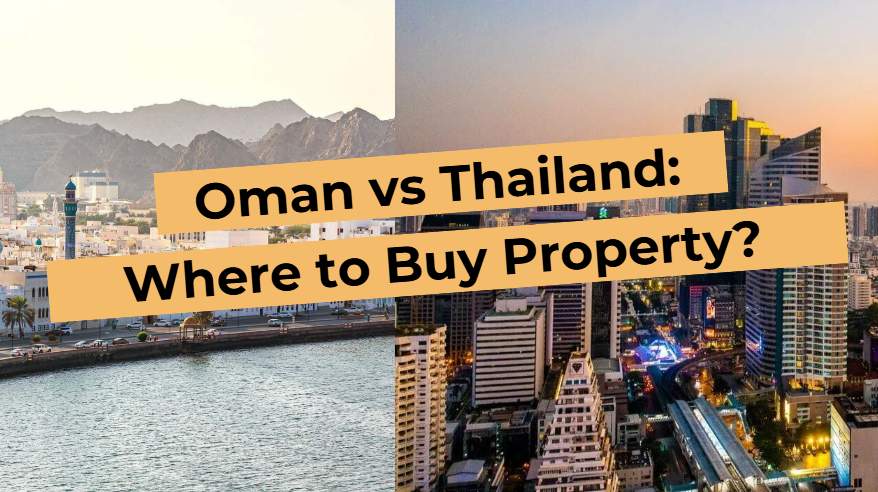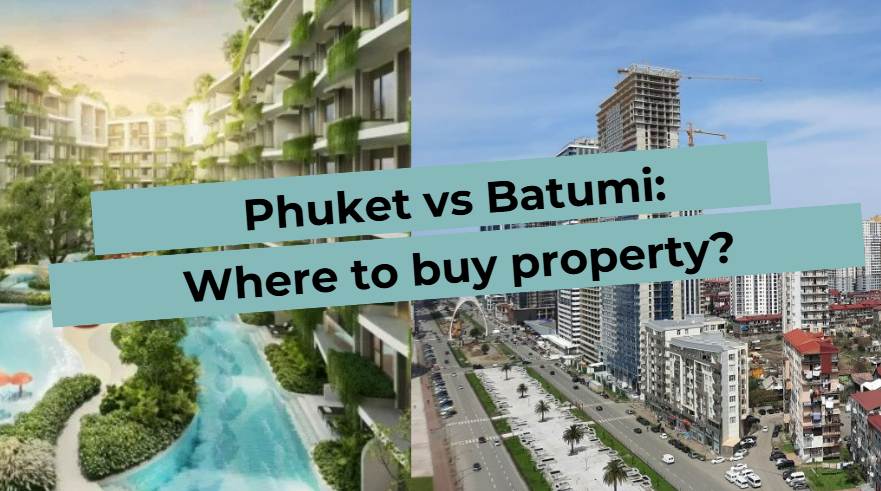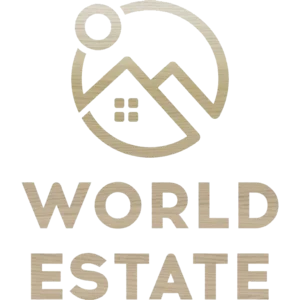
Bangkok vs Chiang Mai: Where to buy real estate and where to invest?
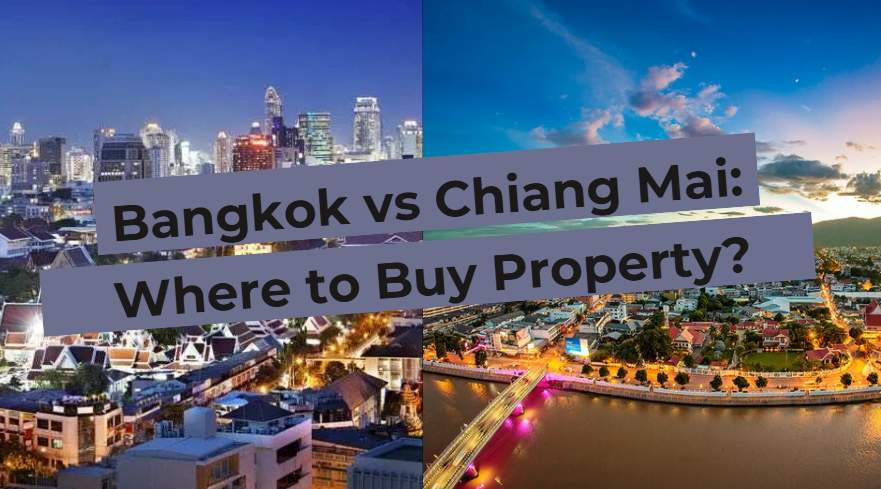

Real Estate Specialist
When it comes to real estate investment in Thailand, two cities invariably come into focus: Bangkok and Chiang Mai. These two cities offer unique opportunities for investors and homebuyers, but each has its own characteristics and nuances. In this article, we will compare the real estate markets of Bangkok and Chiang Mai to help you make an informed choice.
Analysis of the real estate market in Bangkok
When we're talking about Bangkok real estate marketthe first thing that comes to mind is his dynamism and diversity. Bangkok is a metropolis that never sleeps. Here you'll find everything from luxury condos in the city center to cozy houses in the suburbs. But what's happening in the real estate market in Bangkok today?
Current state of the market
At the moment, the real estate market in Bangkok is going through a active growth period. This is due to the increasing number of foreign investors who see Bangkok not only as a tourist destination but also as an economic attraction. In 2024-2025, the demand for real estate here is expected to continue to grow, especially for properties in central areas.
Main trends: demand, supply, prices
The demand for real estate in Bangkok is consistently high. This is not only due to economic activity, but also due to the cultural and educational opportunities the city offers. The average cost per square meter in the city center is about 4,000-5,000 eurosWhile in more remote areas, the price may drop to 2,000-3,000 euros.
Popular areas for investment
If you're planning buy real estate in BangkokIn the Sukhumvit and Silom districts, look out for Sukhumvit and Silom. Sukhumvit is the heart of the city's business district, where many international companies have their offices. SilomIn turn, it offers excellent opportunities for those who want to invest in commercial real estate.
Real estate market analysis in Chiang Mai
Chiang Mai, located in the north of Thailand, offers a completely different experience compared to the bustling and dynamic Bangkok. Famous for its temples and cultural heritage, this city is becoming increasingly popular with those seeking peace and tranquility. But how are things on the Chiang Mai real estate market?
Features of the real estate market in Chiang Mai
Chiang Mai is famous for its unique atmosphereThe region has been attracting both tourists and investors. In recent years, there has been a growing interest in real estate in the region due to infrastructure development and an increase in the number of international schools and universities. Life here is more relaxed, making Chiang Mai an attractive destination for those seeking a balance between work and leisure.
Comparison with Bangkok on key parameters
Compared to Bangkok, Chiang Mai real estate more affordable. The average cost per square meter in the central part of the city is about 1,500-2,500 euroswhich is significantly lower than in the capital. However, it should be noted that the liquidity of objects here may be lower due to the smaller market volume and demand.
Popular areas for investment
For those planning buy real estate in Chiang MaiThe Nimman and Old Town neighborhoods are worth checking out. Nimman - is a modern neighborhood with many cafes, restaurants and stores that attracts young people and students. Old TownIn turn, it offers a historic atmosphere and proximity to major attractions.
Comparison of key investment drivers in Bangkok and Chiang Mai
When it comes to Thailand real estate investmentIt is important to consider a few key factors that will help you make an informed decision. Let's compare the main aspects of investing in Bangkok and Chiang Mai.
| Parameter | Bangkok | Chiang Mai |
|---|---|---|
| Price per 1 sq.m. on average | 4,000-5,000€ | 1,500-2,500€ |
| Registration (costs of notary, registration, fees) | 2-6% from cost | 2-5% from cost |
| Tax on the purchase of real estate | 1-3% from cost | 1-3% from cost |
| Real estate ownership tax, per year | 0.01-0.1% of cadastral value | 0.01-0.1% of cadastral value |
| Payback (period, years) | 12-15 years old | 10-14 years old |
| Rent per day, average | 50-150€ (depending on the neighborhood) | 30-80€ (depending on the season) |
| Profit per year, on average | 4-6% | 5-7% |
| Annual growth of tourists | 6-10% | 4-8% |
| Real estate price growth per year | 5-8% | 3-6% |
| Real estate liquidity | High, quick sale | Medium, sales may take longer |
| Main tenants | Tourists, expats, businessmen | Tourists, students, digital nomads |
| Risks | High competition in the rental market, dependence on economic factors | Limited price growth, less liquidity |
| Development prospects | Construction of new neighborhoods, growth of business activity | Development of tourism, growth in the number of international schools and universities |
| Maintenance costs | Medium to high | Low to medium |
| Type of real estate for investment | Apartments, condominiums, commercial real estate | Apartments, villas, small guest houses |
| Best areas for investment | Sukhumvit, Silom, Chatuchak, Lumpini. | Old Town, Nimman, Chiang Mai University area |
Ultimately, the choice between Bangkok and Chiang Mai depends on your financial goals and preferences. If you're looking for quick liquidity and high growth potentialBangkok may be a better choice. If, however, your goal long-term investments and stable incomeChiang Mai can offer more favorable conditions.
Nuances when buying a home in Thailand
Buying real estate in Thailand can be a great investment, but it's important to keep in mind some specifics and legalities that may affect your decision. Let's take a look at what you need to consider when home purchase by foreigners in this exotic land.

Peculiarities of buying housing by foreigners
In Thailand, foreigners cannot own land, but they can purchase condominium units. Legislation allows foreign nationals to own up to 49% of the total square footage of all apartments in the building. This means that you can buy an apartment in a condominium, but you cannot buy a house with a plot of land.
Legal aspects
When buying real estate in Thailand, it is important to consider legal aspects. It is recommended to hire an experienced lawyer who will help you understand all the intricacies of local legislation and avoid possible problems. It is also worth paying attention to the need to obtain permission from the local authorities to buy real estate if you plan to live in Thailand for a long time.

Recommendations for site selection
When choosing a property, it is worth considering not only its value, but also the location, infrastructure and growth potential. It is also important to assess the condition of the object and the presence of all necessary communications. If you plan to rent out the property, pay attention to areas popular among tenants and proximity to major transportation hubs.
Similarities and characteristics of the real estate market in Bangkok and Chiang Mai
When it comes to Bangkok real estate market and Chiang Mai real estate marketIt is important to realize that, despite their differences, they have some common features. Let's take a look at what these two cities have in common and what their unique features are.
Common features
Both cities offer diverse investment opportunities. Whether you choose Bangkok or Chiang Mai, you'll find a wide range of properties, from modern condominiums to cozy traditional-style houses. Infrastructure in both cities is actively developing, which contributes to the growth of real estate prices and increases its attractiveness for investors.
Unique features of each city
Bangkok - is a metropolis with a thriving business scene and ample opportunities for career advancement. Here you will find everything from luxury shopping centers to international schools and universities. This makes Bangkok attractive for those looking to dynamic city life and is ready to invest in more expensive real estate. The average cost of housing here is about 4,000-5,000 euros per square meter in the central neighborhoods.
Chiang MaiOn the contrary, it offers a quieter and more sedate atmosphere. This city is famous for its cultural and historical attractions as well as its proximity to nature. If you are looking for peace and tranquilityChiang Mai can be an ideal place to live and invest. The cost of real estate here is more affordable, with an average of 1,500-2,500 euros per square meter.
Prospects for growth and development of resort real estate
Thailand has long been a popular destination for tourists from all over the world, and this could not help but affect the resort real estate market. Interest in this segment has only grown in recent years, and both Bangkok and Chiang Mai offer their own unique perspectives on resort real estate investment.
Analysis of tourist flow
Bangkok traditionally attracts a huge number of tourists due to its cultural attractions, shopping centers and diverse entertainment. This creates high demand for short-term rentals, especially in areas close to major tourist attractions. Investors in apartments and condominiums can expect a steady stream of tenants and high returns.

Chiang MaiIn turn, it attracts tourists with its unique atmosphere and proximity to natural attractions. The demand for holiday properties is also growing, especially in areas close to historical centers and natural parks. Ecotourism and cultural tours are becoming increasingly popular, which creates new investment opportunities in this segment.
Impact of infrastructure on real estate value
Both cities are actively developing their infrastructureThe construction of new subway lines and improvement of the transportation network in Bangkok continues, making the city even more accessible to tourists. Bangkok continues to build new subway lines and improve its transportation network, making the city even more accessible to tourists. Chiang Mai is also experiencing infrastructure development, including road improvements and airport expansion.
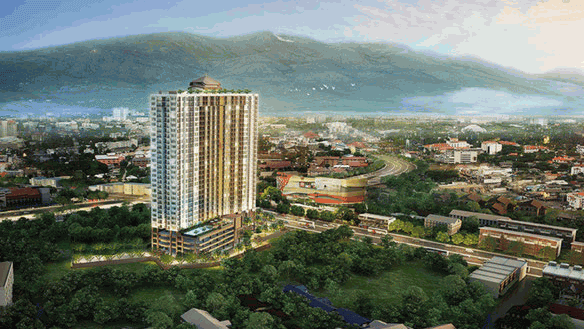
Investors who are considering investing in the holiday real estate ThailandIn order to maximize your growth potential, you must take these factors into account. Whether you choose Bangkok or Chiang Mai, it is important to remember that The success of an investment depends largely on choosing the right object and its location.
Yield from short-term and long-term leases
Investing in real estate in Thailand can be not only profitable, but also quite lucrative, especially when it comes to rental yield. Let's understand the rental situation in Bangkok and Chiang Mai and what factors affect the rates.
Comparison of yields in Bangkok and Chiang Mai
Bangkok - is a city where rental demand remains consistently high due to the large number of tourists and expats. Short-term rentals here can generate income of up to 10% p.a. of the value of the object, especially if it is located in central areas or near major tourist attractions. Long-term lease is also popular, especially among foreign professionals and students, which provides a stable income.
In Chiang Mai rental yields may be lower, but this is offset by lower real estate prices. Short-term rentals is especially popular among tourists coming for long vacations or to study the local culture. Here the profitability can reach 8% p.a.depending on the location of the facility and its condition.
Factors affecting rental rates
Several key factors influence the rental rate in both cities:
- Location: Properties located in central areas or near popular attractions will always be in high demand.
- Condition of the property: Modern and well-equipped apartments and houses attract more tenants and can rent at a higher rate.
- Infrastructure: Proximity to transport hubs, shopping centers and educational institutions also plays an important role in the formation of the rental rate.
Thus, investors considering the possibility of investment in rental property in ThailandIn order to maximize the return on your investment, you should carefully evaluate all of these factors. Regardless of the choice of city, success will depend on the right site selection and rental strategy.
Economy and life in Bangkok and Chiang Mai
When it comes to choosing between living in Bangkok and Chiang Mai, it's important to consider not only the cost of real estate and rental yields, but also the standard of living, cost of living and infrastructure. Let's break down how things are going in these two cities.
Standard of living
Bangkok - is a city that offers all the delights of modern life. Here you will find plenty of restaurants, shopping centers, cultural events and entertainment. However, with this comes a higher level of hustle and bustle. Chiang MaiIn contrast, Chiang Mai offers a more measured and relaxed lifestyle that appeals to those seeking balance and tranquility. In Chiang Mai, you can enjoy nature and culture without giving up the comforts of city life.
Cost of living
Living in Bangkok is generally more expensive than in Chiang Mai. The average monthly living expenses in Bangkok can be approx. 1,500-2,000 euros for a family of three, including rent, food and transportation. In Chiang Mai, these costs may be lower, around 1,000-1,500 euros, making it a more affordable option for those looking to save money.
Infrastructure
Infrastructure Bangkok is better developed than Chiang Mai, making it more convenient for living and business. Here you will find a well-developed transportation network, including subways and buses, as well as many international schools and hospitals. In Chiang Mai, infrastructure is also being actively developed, but on a smaller scale. Nevertheless, the city offers everything you need for a comfortable life, including quality medical services and educational institutions.
Ultimately, the choice between Bangkok and Chiang Mai depends on your personal preferences and lifestyles. Both cities offer unique opportunities and benefits that can meet a wide variety of needs and expectations.
Education and medicine
When it comes to choosing a place to live or invest in real estate, quality of education and health services plays a key role. Let's take a look at how things are in Bangkok and Chiang Mai.
Quality of education
Bangkok offers a wide range of educational institutions, including international schools that follow British, American and other Western education systems. This makes the capital attractive to expats with children. Tuition fees for international schools can range from 10,000 to 20,000 euros per yearDepending on the level and reputation of the institution.
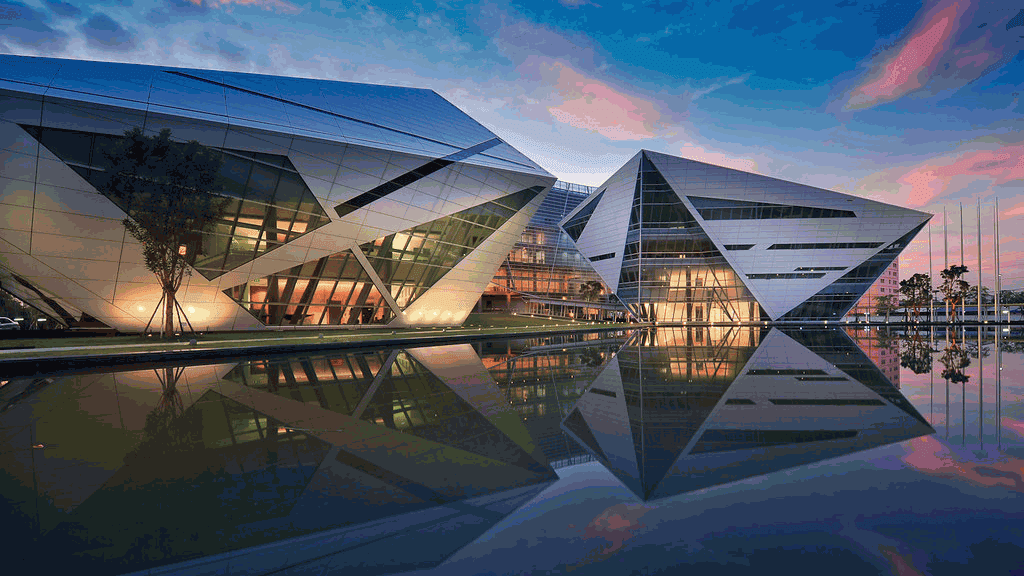
In Chiang Mai There are also a few international schools, but the selection is not as extensive as in Bangkok. However, the quality of education here is of a high standard and tuition fees can be slightly lower, on average 7,000 to 15,000 euros per year. This makes Chiang Mai attractive to families looking for a more economical option without sacrificing the quality of education.
Medical services
In Chiang Mai There are also several good hospitals and clinics that offer quality medical services. Although the choice of medical facilities here is smaller than in Bangkok, many of them offer services at par with international standards. The cost of medical services in Chiang Mai is generally lower, making it attractive to those looking for quality and affordable medical care.
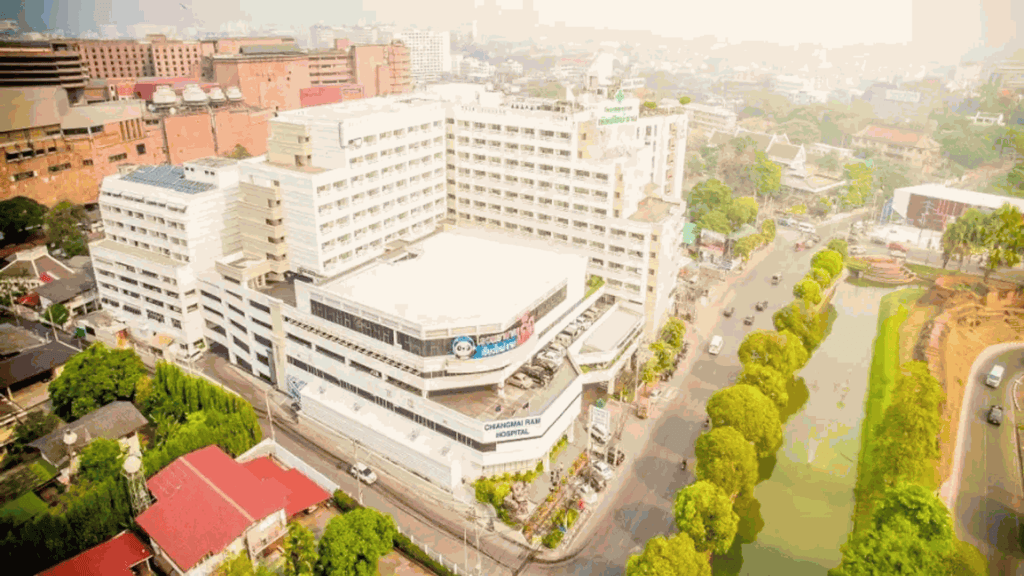
Medicine Bangkok is of a high standard, with many modern hospitals and clinics offering a wide range of services. Many are accredited by international organizations and are known for their professionalism and quality of care. The cost of medical services can vary, but generally remains affordable for most residents and expats.
Thus, both cities are proposing High level of education and medical servicesbut with different emphases and levels of accessibility, which may influence your choice of a place to live or invest.
Roads and transportation
One of the key factors that can influence the decision to buy real estate or move to a new city is the following transportation infrastructure. Let's understand how the roads and transportation are in Bangkok and Chiang Mai.
Developed transportation infrastructure
Bangkok is famous for its well-developed transportation system, which includes subways (BTS and MRT), buses, cabs and tuk-tuks. Metro - is one of the most convenient and fastest ways to get around the city, especially during rush hours when roads can be congested. Metro fares range from 0.50 to 2 euros depending on the distance. Bangkok is also actively developing its transportation network, including building new metro lines and improving road infrastructure.
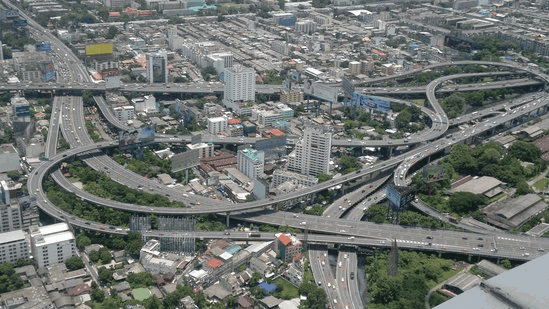
In Chiang Mai The transportation system is less developed than in Bangkok, but the city offers its own unique solutions. The main modes of transportation here are songteo (red trucks) and tuk-tuks. Although there is no subway here, the city has quieter traffic and many people prefer to get around on motorcycles or bicycles. Songteo fares are usually around approx. 0.30-1 euro.
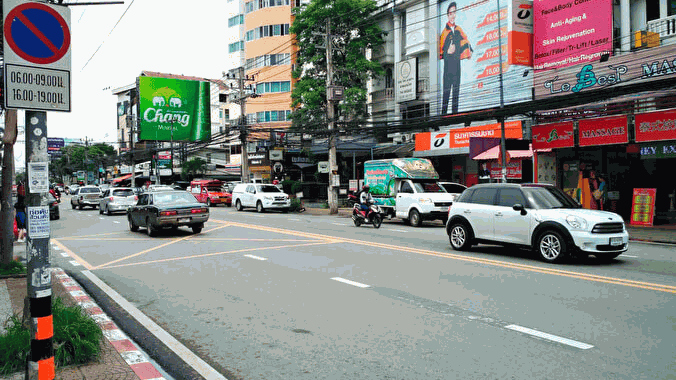
Ease of movement
Moving on Bangkok can be difficult due to traffic jams, especially in the central districts. However, thanks to the developed transportation system, residents and guests of the city always have the opportunity to choose the most convenient and fastest way to travel. Chiang MaiOn the contrary, it offers a more relaxed and measured rhythm of life, which is also reflected in the transportation situation. Here you can enjoy freer traffic and shorter distances between the main points of the city.
In the end, the choice between Bangkok and Chiang Mai in terms of transportation infrastructure depends on your preferences and needs. If you value speed and convenience in the big city, Bangkok offers you all the options you need. If you are looking for a more relaxed and peaceful atmosphere, Chiang Mai can be a great choice.
Legal and tax specifics
Purchasing real estate in Thailand, as in any other country, requires an understanding of local legal and tax aspects. Let's take a look at what regulations and taxes await you in Bangkok and Chiang Mai.
Real estate taxes
There are various taxes associated with real estate in Thailand. Purchase tax is about 1% of the value of the facility, and there is a stamp duty at the rate of 0.5%. If you decide to sell the property, you will have to pay capital gains tax, which may vary depending on how long you own the property and its value.
Legal aspects of owning and leasing
Foreign nationals can purchase ownership of condominium units, but cannot own land. This means that buying a house with a plot of land requires additional legal solutions, such as a long-term land lease. Long-term lease can be concluded for a period of up to 30 years with the possibility of extension, allowing foreigners to own a house without direct ownership of the land.
Features of the lease
If you are planning to rent out your property, it is important to consider local laws and regulations. In Thailand, there are lease registration obligationIf the lease term exceeds three years. This may require additional cost and time, but will provide legal protection for both the landlord and the tenant.
What should an investor choose: Bangkok vs Chiang Mai?
When it comes to Thailand real estate investmentWhen choosing between Bangkok and Chiang Mai, it can be a daunting task. Both cities offer their own unique opportunities and challenges, so it is important to consider all of them pros and cons of each option before making a decision.
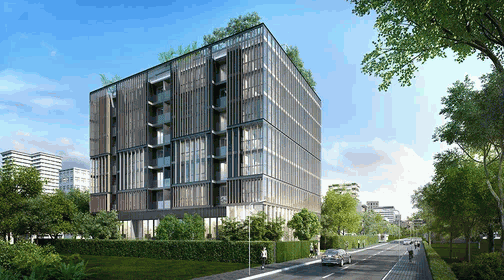
Recommendations for investors
If you are looking for high growth potential and quick liquidityBangkok may be your best choice. This metropolis with its vibrant economy and developed infrastructure offers wide range of facilities for investment, from luxury condominiums to commercial real estate. The average cost per square meter here is about 4,000-5,000 euros in central areas, making it a more expensive but also a more promising market.
Chiang Mai, on the other hand, is suitable for those who are looking for a long-term investments and stable income. This city with its cultural heritage and relaxed atmosphere offers more affordable real estate prices, on average 1,500-2,500 euros per square meter. Chiang Mai can be an ideal choice for those who want to invest in . ecotourism and cultural projectswhich are becoming increasingly popular.
Pros and cons of each city
Chiang Mai:
- Positive: affordable real estate prices, peaceful atmosphere, growing popularity among tourists.
- Minuses: less developed infrastructure, lower liquidity of objects.
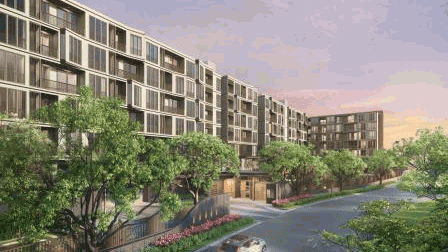
Bangkok:
- Positive: high growth potential, developed infrastructure, wide range of objects.
- Minuses: high cost of living, congestion and noise.
Ultimately, your choice will depend on your financial goals and personal preferences. Whether you choose Bangkok or Chiang Mai, it is important to research the market thoroughly and consult with experts to make a informed and profitable choice.
The choice depends on your goals: Bangkok is suitable for fast growth and liquidity, Chiang Mai for long-term investment and quiet living.
Property purchases are subject to a purchase tax of around 1% and stamp duty of 0.5%.
Tuition fees for international schools in Bangkok range from €10,000 to €20,000 per year.
Songteos (red trucks) and tuk-tuks are popular in Chiang Mai, and many people prefer motorcycles and bicycles.
Sukhumvit and Silom are considered the most attractive areas for investment due to business activity and the presence of international companies.
Short-term rental yields in Bangkok can be as high as 10% per annum, especially in popular neighborhoods.
Foreigners cannot directly own land, but can purchase condominium units.
Chiang Mai offers lower real estate prices and growing popularity among tourists, especially in the ecotourism segment.
The average cost per square meter in central areas of Bangkok is around 4,000-5,000 euros.
Bangkok offers higher liquidity and growth potential, while Chiang Mai attracts with affordable prices and a relaxed atmosphere.
Which to choose: Bangkok or Chiang Mai?
The choice depends on your goals: Bangkok is suitable for fast growth and liquidity, Chiang Mai for long-term investment and quiet living.
What are the taxes associated with buying a property in Thailand?
Property purchases are subject to a purchase tax of around 1% and stamp duty of 0.5%.
What are the tuition fees for international schools in Bangkok?
Tuition fees for international schools in Bangkok range from €10,000 to €20,000 per year.
What are the main means of transportation in Chiang Mai?
Songteos (red trucks) and tuk-tuks are popular in Chiang Mai, and many people prefer motorcycles and bicycles.
Which areas of Bangkok are the most attractive for investment?
Sukhumvit and Silom are considered the most attractive areas for investment due to business activity and the presence of international companies.
What are the rental yields in Bangkok?
Short-term rental yields in Bangkok can be as high as 10% per annum, especially in popular neighborhoods.
Can foreigners own land in Thailand?
Foreigners cannot directly own land, but can purchase condominium units.
What attracts investors to Chiang Mai?
Chiang Mai offers lower real estate prices and growing popularity among tourists, especially in the ecotourism segment.
What is the average cost per square meter in Bangkok?
The average cost per square meter in central areas of Bangkok is around 4,000-5,000 euros.
What are the main differences between the Bangkok and Chiang Mai real estate markets?
Bangkok offers higher liquidity and growth potential, while Chiang Mai attracts with affordable prices and a relaxed atmosphere.
